Quick Links
Write to us
For Collabs: collabs@rootedandrouted.com
For Marketing: marketing@rootedandrouted.com
For Podcast Requests: podcast@rootedandrouted.com
Listeners:
Top listeners:
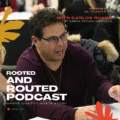 play_arrow
play_arrow
Carlos Ruano - Episode 10 Rooted and Routed Podcast - Season 2
 play_arrow
play_arrow
Bindi Basan - Episode 9 Rooted and Routed Podcast - Season 2
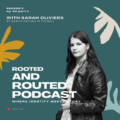 play_arrow
play_arrow
Sarah Oliviers - Episode 8 Rooted and Routed Podcast - Season 2
 play_arrow
play_arrow
Joanna DukkiPati - Episode 7 Rooted and Routed Podcast - Season 2
 play_arrow
play_arrow
Christian Huber – Episode 6 Rooted and Routed Podcast - Season 2
 play_arrow
play_arrow
Summie Yeung – Episode 5 Rooted and Routed Podcast - Season 2
 play_arrow
play_arrow
Anna Skorobogatowa – Episode 4 Rooted and Routed Podcast - Season 2
 play_arrow
play_arrow
Arnaud Lucas – Episode 3 Rooted and Routed Podcast - Season 2
 play_arrow
play_arrow
Jan Thomas Lerstein – Episode 2 Rooted and Routed Podcast - Season 2
 play_arrow
play_arrow
Mimi Nicklin - Episode 1 Rooted and Routed Podcast - Season 2
 play_arrow
play_arrow
Indian Republic Day Compilation - Episode rootedandrouted.com
 play_arrow
play_arrow
Landry Tchapda - Episode 16 rootedandrouted.com
 play_arrow
play_arrow
Josh Boyles - Episode 15 rootedandrouted.com
 play_arrow
play_arrow
Pavi Lustig - Episode 14 rootedandrouted.com
 play_arrow
play_arrow
Rebecca Thomas - Episode 13 rootedandrouted.com
 play_arrow
play_arrow
Lou Henderson - Episode 12 rootedandrouted.com
 play_arrow
play_arrow
Api Mirpuri - Episode 11 rootedandrouted.com
 play_arrow
play_arrow
Veerle Beelen Da Costa David - Episode 10 rootedandrouted.com
 play_arrow
play_arrow
Marie Hélène - Episode 9 rootedandrouted.com
 play_arrow
play_arrow
Naddy - Episode 8 rootedandrouted.com
 play_arrow
play_arrow
Luc Mignon - Episode 7 rootedandrouted.com
 play_arrow
play_arrow
Alisée Mignon - Episode 6 rootedandrouted.com
 play_arrow
play_arrow
Dieter Withoeck - Epsiode 5 rootedandrouted.com
 play_arrow
play_arrow
Sandra Showalter - Episode 4 rootedandrouted.com
 play_arrow
play_arrow
Thomas Heinry - Episode 3 rootedandrouted.com
 play_arrow
play_arrow
Kim Provo - Episode 2 rootedandrouted.com
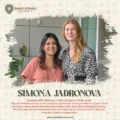 play_arrow
play_arrow
Simona Jadronova - Episode 1 rootedandrouted.com
BlogCultural IntegrationExpat rootedandrouted.com February 3, 2025
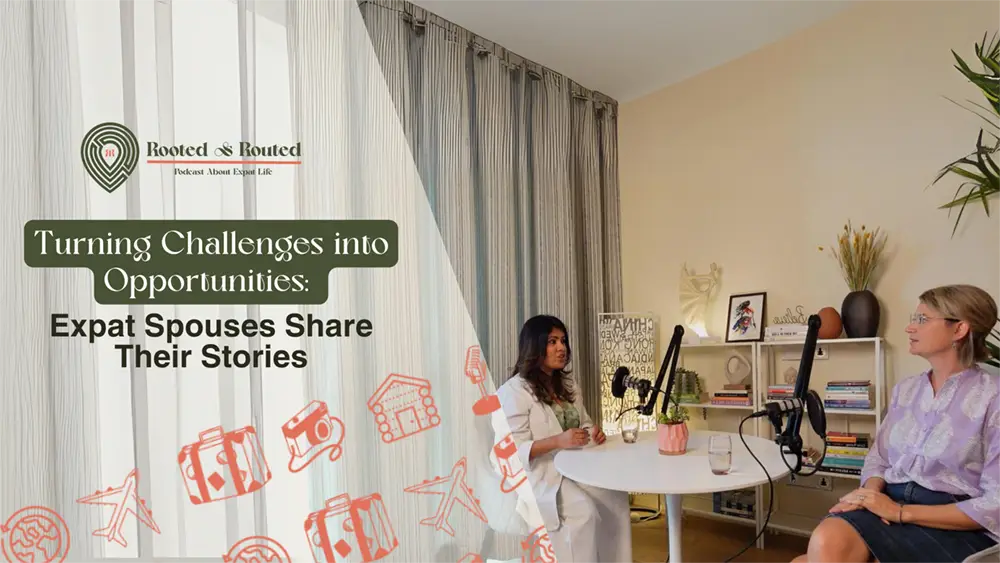
Being an expat spouse can be both an exciting and challenging experience. While living abroad offers new cultures and opportunities, visa restrictions often prevent spouses from working, leaving them feeling stuck and unfulfilled. As the host of Rooted and Routed Podcast, a podcast dedicated to expat life, I’ve spoken to many expat spouses navigating this reality. From lawyers to photographers, and to corporate professionals, one common theme emerges: navigating visa restrictions can feel like an enormous hurdle. But it doesn’t have to define your expat experience.
In Episode 6 of my podcast, Rooted and Routed Podcast, I spoke with Alisée Mignon, who shared her frustration about not being able to work for five years due to visa restrictions while on her husband’s contract. “It’s part of my freedom that I’ve given up and I’m dependent on my husband’s work and his money. The consulates or the person’s making the visas are not helping. (We could) have a journey of our own, once the kids are grown, we could work,” she explained. Her story resonates with many expat spouses who find themselves dependent on their partner’s income, with no opportunity to pursue a career.

Similarly, Sandra Showalter, a guest in Episode 4, shared her struggle after more than a decade away from the workforce due to frequent relocations. “I started out in corporate America, then moved to Dubai and left that behind. It’s hard to get back in if you’ve been away for so long. Companies don’t want to hire you if you’ve been away for six or seven years,” she said. This is a familiar story for many expat spouses who once had thriving careers but find it challenging to re-enter the job market after an extended absence.
Even starting a business, a seemingly ideal solution, isn’t always viable. As Sandra pointed out, “Starting a business takes years to become profitable. And if you’re moving every three to five years, it’s hard to build something sustainable.”

Despite these challenges, expat spouses are finding creative ways to stay engaged, pursue passions, and even build businesses. Here are some practical solutions inspired by the stories shared on my podcast:

Alongside the suggestions shared by Kim, Alisée, and Sandra, I’ve gathered two more solutions from my own conversations with expat spouses:
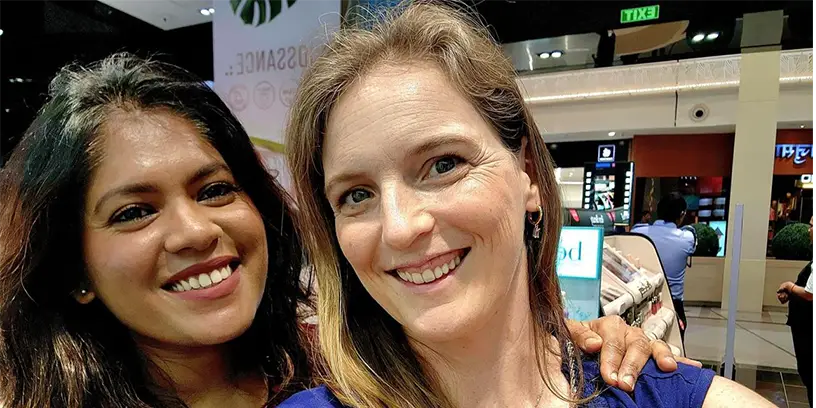
While non-working visa restrictions can feel limiting, they also present opportunities for creativity and personal growth. As the stories of Kim, Alisée, and Sandra show, expat spouses can still find fulfillment by volunteering, starting passion projects, or upskilling. Whether through a personal project, online business, or connecting with the expat community, there are many ways to thrive abroad—even without a work visa.
By focusing on creative solutions, expat spouses can navigate these visa challenges and make the most of their expat journey.

Still need more inspiration?
Listen to Episode 1 with Simona Jadronova, who went from a work visa with a manufacturing company, to starting two businesses in India on her own business visa.
For Collabs: collabs@rootedandrouted.com
For Marketing: marketing@rootedandrouted.com
Are you sure you want to cancel your subscription? You will lose your Premium access and stored playlists.
✖
Be the first to leave a comment